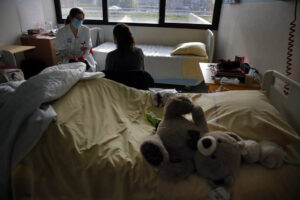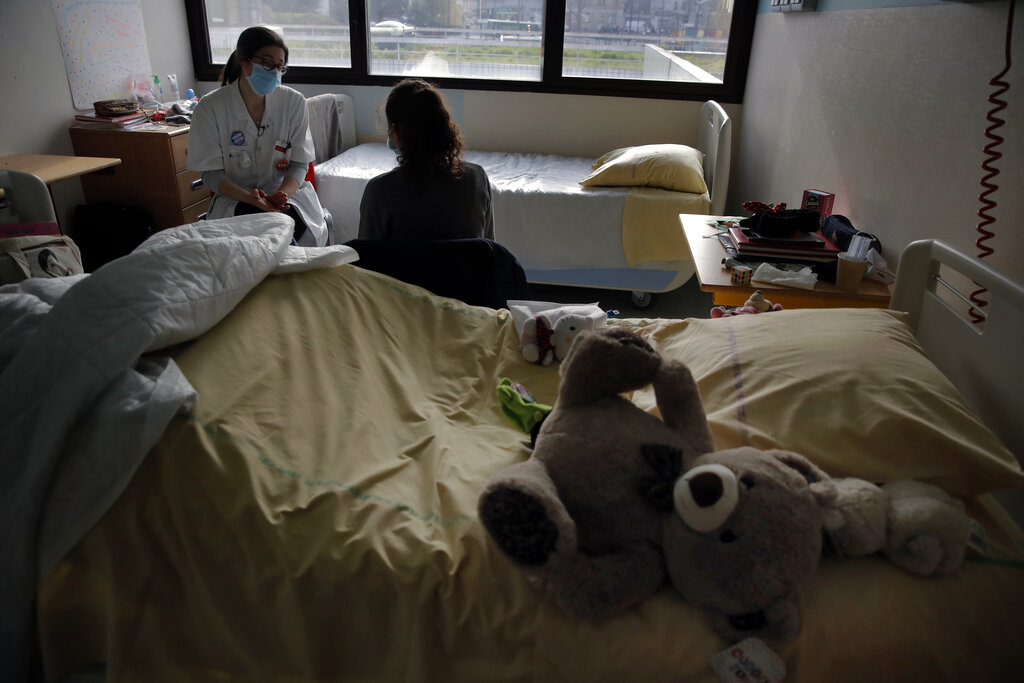
Freshman Myles Clark remembers being at a fraternity party with a tight-knit group of friends at Santa Clara University last March. That day, he had no way of knowing his school would soon be disruptively shifting his college experience online.
Like the millions of students around the country, Clark has experienced a massive disruption in his college life as he and others have had to learn how to navigate making friends, keeping up course work and staying afloat during a pandemic.
The yearlong effort, often in isolation away from peers, has taken a serious mental toll on students well-being. One in four people aged 18 to 24 having considered suicide, according to a report conducted by the Centers for Disease Control and Prevention last June.
“College is an important time for developing an independent adult life,” said Emily Balcetis, associate professor of Psychology at New York University and the author of Clearer, Closer, Better: How Successful People See the World. “Since Covid-19 put the breaks on that process and pushed many college students to return home, that process of discovering independence was put on pause.”
This abrupt disruption put some students in an immediate shock, leaving them filled with uncertainty and anxiety over whether to stay in school or return home.
“It was a progression from me thinking things weren’t as serious as everyone made it out to be to my mom then getting worried and saying, ‘I had two days to pack my stuff up and catch a flight home to Indiana’ to then boarding my plane in tears,” said Clark.
It was a hard reality to accept at first. But Clark said he “finally swallowed the hard pill that something really bad was going on and I likely would not see my friends for quite some time.”
For Nicoleta Krenteras, 20, it was even tricker.
She was still an Environmental Studies student at Boston University when the lockdown began in March even though she had applied to transfer to NYU just two months earlier.
“I had been unhappy for a pretty decent amount of time at that point,” said Krenteras about her former college experience. But the months of quarantine that followed and a fully virtual first semester at her new school didn’t do much to improve her situation either.
Krenteras is not alone. Roughly 64% of students reported feelings of loneliness and 47% of college students screened positive for depression or anxiety last fall, according to a nationwide study led by Sarah Ketchen Lipson, an assistant professor in the Department of Health Law Policy and Management at the Boston University School of Public Health.
“As people, we have a fundamental need for control,” said Balcetis. “COVID-19 has made it very challenging for us to feel in control. That has led to chronic anxiety.”
Although Clark was able to return to Santa Clara this past fall, his anxiety has continued to increase to an all-time high.
“Everything felt so out of place,” said Clark, who had moved into an off-campus apartment. “My friends were scattered across the world because our school has been closed.”
Krenteras agrees. After moving into an apartment in Greenwich Village at the start of her first fall semester at NYU, she hasn’t been able to find the sense of community she was hoping for with many of her classes and extracurricular clubs online.
“For transfers, and incoming freshmen, it’s almost harder,” said Krenteras. “Because we don’t have those solid roots in terms of friendships made before the pandemic. It definitely adds to that feeling of loneliness and anxiety.”








